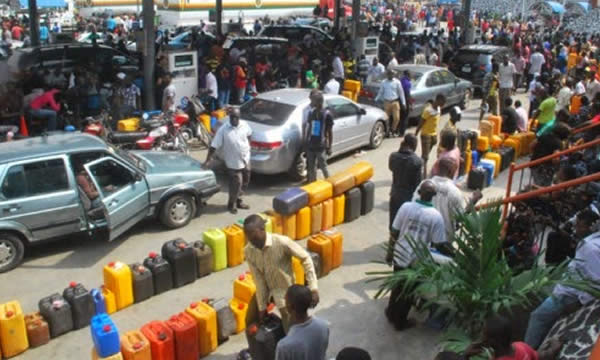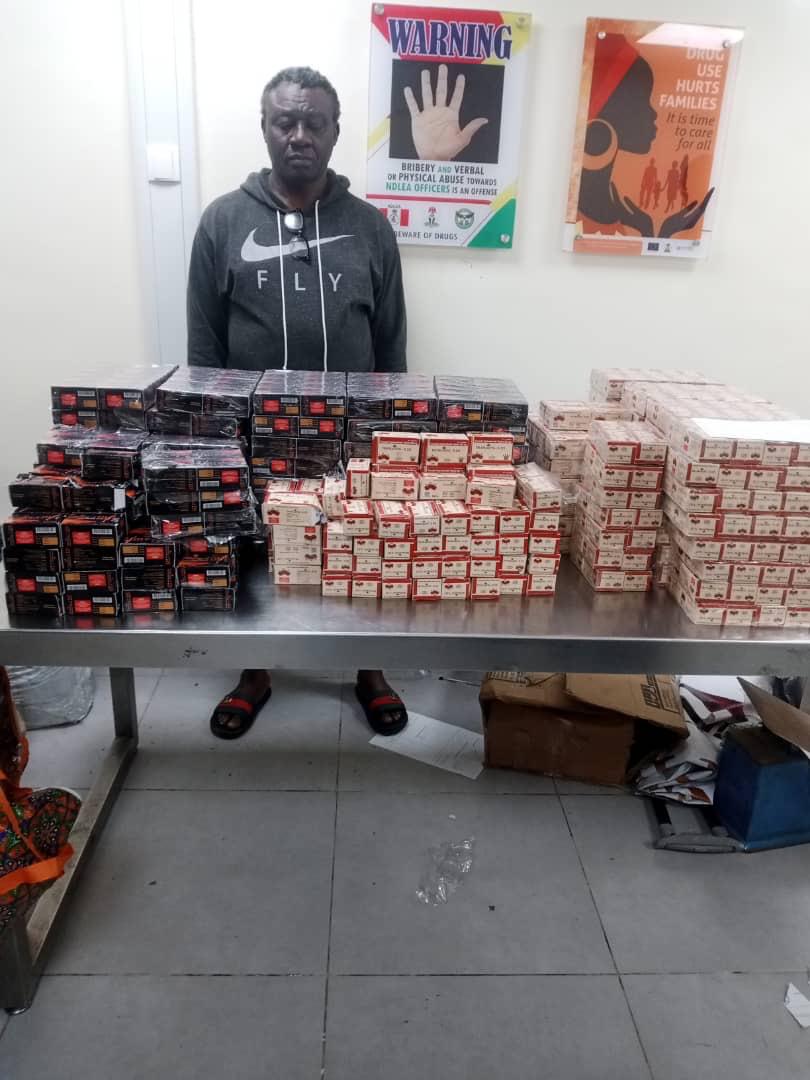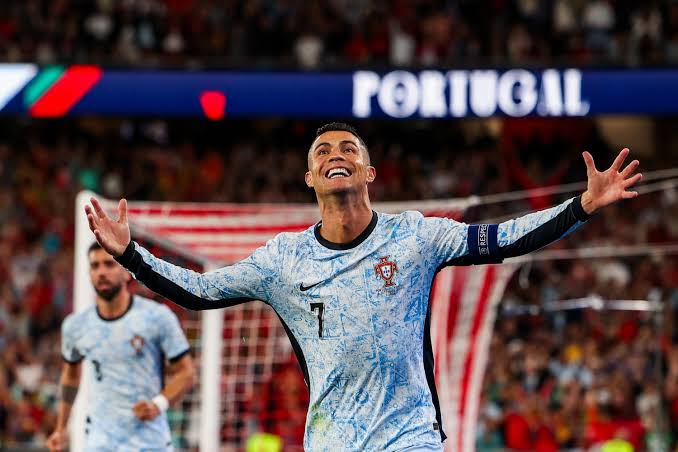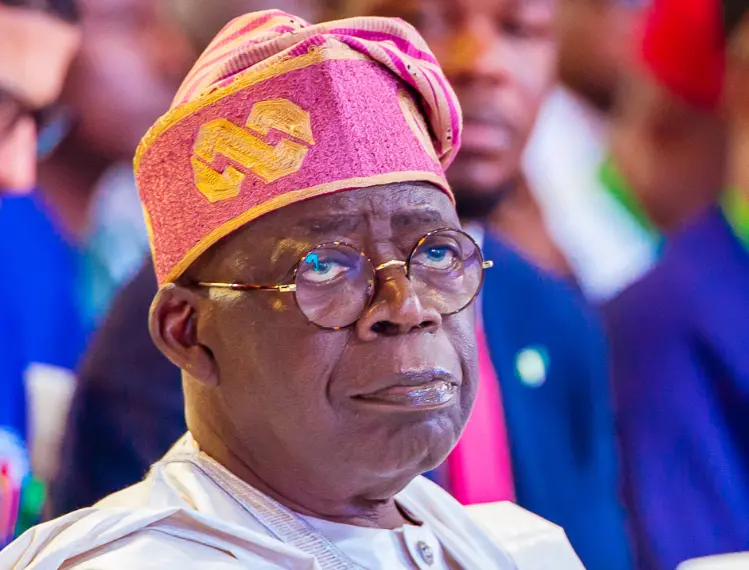The Nigerian National Petroleum Company Limited has vowed to end the queues for Premium Motor Spirit, popularly called petrol, by Wednesday, as the black market for PMS boomed on Sunday.
NNPC also declared that it did not owe international oil traders $6.8bn as claimed in some quarters, a development which some industry watchers described as a major reason for the widespread PMS scarcity in Nigeria.
But despite the national oil firm’s assurance that the queues for petrol would clear this week, oil marketers said on Sunday that the loading of products at depots had yet to improve.
Black marketers of petrol who sold the commodity in jerrycans took advantage of the situation, as they dispensed PMS for as high as N1,200 to N1,500/litre, depending on the area of purchase.
This came as the sole importer of the commodity (NNPC) blamed the petrol scarcity on evacuation challenges at PMS vessels.
NNPC is Nigeria’s only importer of petrol. Other dealers stopped importing the commodity due to their inability to access the United States dollar required for petrol imports.
The Chief Corporate Communications Officer of NNPC, Olufemi Soneye, told one of our correspondents that the oil firm was working hard to tackle the fuel supply challenges, stressing that the queues should clear by mid-week.
“It’s just an evacuation challenge out of Apapa (ports in Lagos) from the vessel. But we are working on it. It should be resolved. I’m very sure that fuel scarcity will be cleared out by Wednesday,” Soneye stated on Sunday.
He later issued a press statement on the matter, saying, “The NNPC Ltd regrets the tightness in fuel supply witnessed in some parts of Lagos and the FCT (Federal Capital Territory), which is as a result of distribution challenges.
“The company further urges motorists to shun panic buying as it is working round the clock with relevant stakeholders to restore normalcy.”
But operators told that the fuel supply situation at the depots had yet to improve as of Sunday.
An official of one of the top petroleum companies in Nigeria said the company was out of stock.
“We don’t have supply yet. For us and many depots in Apapa, it’s nil stock,” the official, who spoke in confidence due to lack of authorisation to speak on the matter, stated.
An oil marketer disclosed that the scarcity might get worse in Lagos during the week as there was no improvement in supply.
“The scarcity may get worse in Lagos during the week. Nothing is changing yet. Though motorists still get the product to buy although at very high rates,” the marketer disclosed.
A depot operator revealed that “depots will still get supplies this week, but definitely it will not be enough to meet desired demand to bring down the fuel crisis.”
The manager of a filling station in Abeokuta, the Ogun State capital, said a litre of petrol was N880 as of Friday.
The manager, who identified himself simply as Adeyanju, said his principal had not been able to get fuel since Friday, adding that the private depots were hiking the price of petrol.
On his part, the National Publicity Secretary of the Independent Petroleum Marketers Association of Nigeria, Chief Ukadike Chinedu, said the challenges in the downstream oil sector were compounded by the recent nationwide hunger protests.
“Aside from the fact that there is not enough supply, the recent protests disrupted activities in the downstream oil sector. We are still struggling to sort that one out and there is also the challenge of low supply of petrol,” he stated.
In a similar development, the national oil firm said on Sunday that it does not owe international oil traders $6.8bn.
The company also denied claims that it has not remitted funds into the federation account since January.
Soneye, in a statement, reacted to different allegations against the state-owned energy firm.
It was alleged that NNPC owed some of its suppliers, being the sole importer of petrol into Nigeria, though Soneye acknowledged that such transactions were done on credit.
“NNPC Ltd does not owe the sum of $6.8bn to any international trader(s). In the oil trading business, transactions are carried out on credit, so it is normal to owe at one point or the other.
“But NNPC Ltd through its subsidiary, NNPC Trading, has many open trade credit lines from several traders. The company is paying its obligations of related invoices on a first-in-first-out basis,” Soneye stated.
However, he did not state the financial obligations NNPC is currently attending to.
On remittances, he said, “It is not correct to say that NNPC Ltd has not remitted any money to the federation account since January. NNPC Ltd. and all its subsidiaries remit their taxes to the Federal Inland Revenue Service regularly.
“This is in addition to payments of CIT (company income tax) to road contractors under the Road Investment Tax Credit Scheme. In all, NNPC Ltd is the largest contributor to the tax revenue shared every month at the Federation Account Allocation Committee.”
Soneye maintained that the NNPC is not a regulator and has nothing to do with the quality of imported fuel.
“On the issue of quality/quantity fiscalisation of imported petroleum products, NNPC Ltd has no role whatsoever as it is not a regulator. The Nigerian Midstream and Downstream Petroleum Regulatory Authority, which is the relevant regulatory agency in charge of such issues, is an independent body and does not report to the NNPC Ltd,” he noted.
He explained that the NNPC is not averse to inquiries by the media into issues on and around its operations before dissemination to the public either through the print or electronic channels of communication.
“The company will, always, gladly take the opportunity to state the facts of the subject matter(s). This is in line with the company’s commitment to the Transparency, Accountability, and Performance Excellence philosophy as emplaced by the Mele Kyari-led management since stepping into the saddle in 2019,” Soneye said.
Despite NNPC’s assurance and defense, the queues for petrol lingered in many states and Abuja, while the cost of the commodity crossed N1,000/litre in some locations.
Fuel scarcity persisted in Abuja, Nasarawa, Niger, and neighbouring states. It resurfaced in Lagos on Sunday. observed that the queues to the Northwest filling station inward Gbagada stretched to the West End bus stop along the Gbagada-Oworonshoki Expressway.
The queues at the NNPC filling station at Ogudu stretched across the nearby bridge. It was the same scene at the MRS filling station at the Estate bus stop.
In Osogbo, Osun State, petrol was unavailable in most filling stations observed in Ayetoro, Old Garage, and Ota Efun Area, while a handful of independent marketers dispensing fuel sold the product for N800/litre.
Motorists and commuters decried the increase in petrol prices in Edo State. Independent marketers sold it for between N830 and N890/litre in the state capital while the outlets owned by major marketers sold for between N680 and N688/litre.
The cost of transportation worsened in Uyo as petrol sold for between N900 and N950/litre in the metropolis.
Residents of Gombe State lamented the increase in the cost of PMS across most filling stations in the state.
Petrol scarcity in Bauchi State did not change as customers stayed in long queues to buy the product on Sunday.
Residents of Lafia, the Nasarawa State capital, lamented the hike in the price of PMA and the scarcity of the product.
The scarcity was also pronounced in Sokoto State as many residents expressed frustration over the development.
The fuel scarcity in the Kaduna metropolis and its environs continued unabated on Sunday, causing untold hardship to motorists and other road users.



